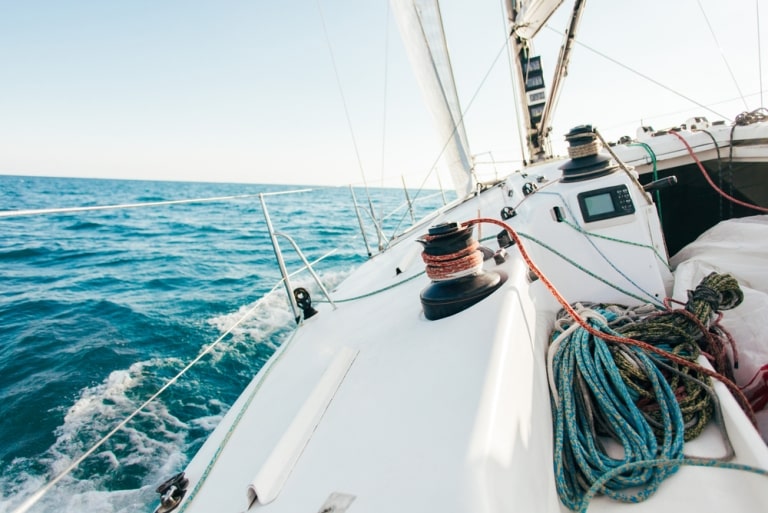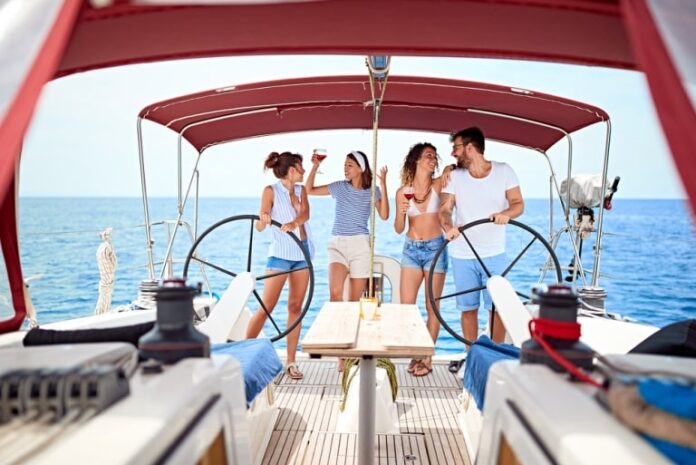Picture yourself cruising along the crystal clear waters, feeling the cool ocean breeze on your face and soaking up the warm sunshine. Sounds like paradise, doesn’t it? Going on a boating vacation can be an incredible experience filled with relaxation and adventure.
However, for some people, just the thought of planning a boat trip can cause overwhelming stress. From worrying about safety to packing everything you need for a successful voyage, numerous factors can make a boating vacation seem daunting.
But fear not. In this blog post, we will share our top tips for having a stress-free boating vacation.
1. Always Follow Safety Precautions
Safety should always be the top priority when planning and executing a boating vacation. It is essential to familiarize yourself with all the safety measures and guidelines related to boating. This includes understanding the right way to operate the boat, knowing all the emergency procedures, and ensuring that all passengers are aware of them, too.
Before setting sail, conduct a safety briefing with all individuals on board, discussing what to do in case of an emergency, where the life jackets are located, how to use them, and how to operate the radio for emergency calls.
In the unfortunate event of a boating accident, it’s crucial to have a competent legal guide by your side. For instance, with this St Louis boating accident lawyer, you can rest assured that your case will be handled with expertise and care.
Watercraft lawyers have a vast knowledge of maritime laws and can help you navigate through the legal process, giving you peace of mind during an already stressful time.
2. Plan Your Route Ahead of Time
Planning your route ahead of time is paramount to a stress-free boating vacation. This involves researching your desired route thoroughly and taking note of any potential hazards, such as shallow areas, busy shipping lanes, or challenging weather conditions.
Identify suitable docking or mooring areas and plan your travel times to avoid navigating unfamiliar waters in the dark. The use of navigational apps and marine charts can greatly assist in this process.
It’s advisable to communicate your route to someone on land. Keeping an up-to-date float plan with a family member or friend ensures that someone knows where you are and when you intend to return, which is critical in case of an emergency.
Having a well-defined route not only enhances your safety but also allows you to relax and better enjoy the voyage, knowing you’ve prepared for the journey ahead.
3. Check Your Boat Thoroughly Before Departure
Ensuring your boat is in excellent condition before setting sail is crucial to a smooth and stress-free vacation.
It’s important to conduct a comprehensive check of your boat’s systems – this includes the engine, electrical systems, steering and control systems, fuel and water systems, as well as safety equipment such as lifejackets, flares, and fire extinguishers.
Pay particular attention to the weather predictions for your voyage and ensure you have the equipment to handle any adverse conditions.
In addition, make sure your boat’s registration, insurance, and necessary permits are up-to-date. While this may seem tedious, neglecting this step can lead to unnecessary headaches, such as hefty fines or even impoundment of your boat.
A quick and thorough inspection before setting off can save you a world of trouble, allowing you to enjoy your boating vacation fully.

4. Pack Wisely and Pack Light
When embarking on a boating vacation, it’s important to pack wisely, focusing on essential items that would add value to your trip. Consider the weather, duration of your trip, and activities you plan on doing.
Essential items may include water-resistant clothing, sun protection gear like hats and sunglasses, personal medications, toiletries, non-perishable food items, water, and navigation tools.
Remember also to pack your travel documents, cash and cards, and any necessary boating licenses or permits.
However, while it’s essential to be well-prepared, over-packing can become a burden on a boat due to limited storage space and can impact the boat’s performance. Pack light, prioritize multi-purpose items, and remember that items should be stored securely to prevent them from moving around when the boat is underway.
It’s a balancing act between bringing everything you might need and maintaining a safe and uncluttered environment on the boat.
5. Stay Hydrated and Protect Against Sun Exposure
Hydration and sun protection are key to your comfort and safety during a boating vacation. Whether you’re sailing under the hot summer sun or braving the cool sea breeze, maintaining adequate hydration levels is essential.
Always remember to pack ample drinking water and hydrating beverages. Dehydration can lead to fatigue, dizziness, and confusion, which might impair your ability to operate the boat safely. Light snack options like fruit also provide natural hydration and can help keep energy levels up.
Sun exposure is another factor that requires attention. The reflection of the sun’s rays off the water can intensify UV exposure, increasing the risk of sunburn and long-term skin damage.
Make sure to apply a broad-spectrum sunscreen of at least SPF 30 every two hours or more frequently if swimming or sweating. Protective clothing, hats, and sunglasses can further shield you from harmful UV rays.
6. Practice Good Anchoring Techniques
Mastering good anchoring techniques is a critical aspect of a stress-free boating vacation. A well-anchored boat provides security and peace of mind, allowing you to enjoy your surroundings without worrying about drifting off.
It’s essential to understand the right methods for your boat and the conditions in which you’re anchoring, including the type of seabed, depth of water, and the forecasted weather. Always ensure that your anchor is well-set by slowly backing away and observing any movement.
Investing in high-quality anchoring equipment is a sound decision. Your choice of anchor should suit the seabed conditions you’re likely to encounter, while the length and type of your anchor ride (the line connecting the anchor to the boat) should be appropriate for the depths at which you’re anchoring.
Always remember to use enough scope (the ratio of rode length to water depth) for a secure hold. Practicing your anchoring skills before your voyage will increase your confidence, leading to a more relaxing and enjoyable boating vacation.
The key to a stress-free boating vacation is preparation and attention to detail. By following these tips, you can enhance your safety, comfort, and overall experience while cruising along the beautiful waters on your next boating adventure. So go ahead and start planning for a smooth sailing trip – paradise awaits.



